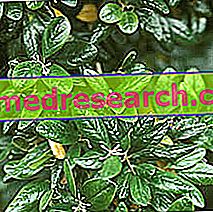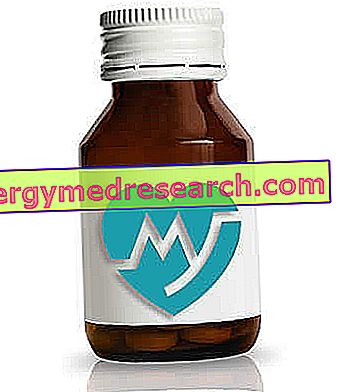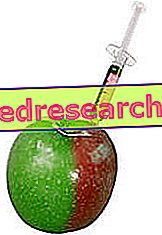Definition
The term teniasis refers to an infection sustained by a multicellular parasite known as Tenia or, more commonly, a solitary worm. The people most at risk of contracting the disease are those who live in poor, developing countries, where health and hygiene regulations leave something to be desired.
Causes
Teniasis is caused by an infection sustained by flatworms belonging to the Platelminti family; the most common species are Taenia Solium, Taenia Saginata, Hymenolepis nana and Diphillobothrium latum, which can infect humans following the ingestion of infected, undercooked or raw meat (eg pork, bovine, wild boar etc.).
In detail…
The man, feeding on poorly cooked meats infected with tapeworms, risks contracting the infection; the parasite lives in the host within the intestine, feeding on nutrients and creating damage.
Symptoms
The symptoms of teniasis appear only after a few months from the infection: since the tapeworm feeds on the nutrients of the host in which it lives, the patient is always hungry but, although he eats excessively, he is unable to gain weight. Furthermore, the victim is fatigued, complaining of diarrhea, abdominal pain, nausea, vomiting. Vitamin and mineral deficiencies are common elements among patients with teniasis.
Information on Teniasis - Drugs for the Treatment of Tenia Infestation is not intended to replace the direct relationship between health professional and patient. Always consult your doctor and / or specialist before taking Teniasis - Drugs for the Treatment of Tapeworm Infestation.
Medications and treatments
Tapeworm infection is generally eradicated with a simple drug treatment; only in the most severe cases, the teniasis can only be eradicated by a small surgical procedure. The most difficult problem consists in the diagnosis: often, in fact, it is difficult to find an answer to the symptom picture. The presence of tapeworms in the intestine can only be ascertained by physical examination of the faeces. From these words we understand how the immediate medical examination, starting from the earliest suspicious symptoms, is essential to remove the parasite in the shortest possible time.
Teniasis can be prevented through the consumption of well-cooked meats, especially those that are suspect and of dubious origin; even the freezing of the meat before cooking can be a valid preventive option for teniasis.
Drug therapy, in the vast majority of cases, has the primary objective of eradicating tapeworms from the intestine and, when necessary, from contiguous contaminated tissues: the drug, detaching the head of the parasite from the wall of the host's intestine, it favors the removal of the same through the evacuation. Not surprisingly, drug therapy with these drugs (listed below in detail) is often associated with the administration of laxatives, which are very useful to promote evacuation, therefore also the expulsion of the tapeworm.
- Praziquantel (eg Droncit, Tremazol): it is one of the most widely used anthelmintic drugs for the treatment of teniasis; the active principle works by increasing the membrane permeability of the parasite, causing paralysis. For the treatment of Taenia saginata and Taenia solium, it is recommended to take the drug at a dose of 5-10 mg / kg orally, in a single dose. In the past, the recommended dose was 20mg / kg, taken as a single dose. The drug is not marketed in Italy.
- Paromomycin (eg. Humatin). The drug belongs to the class of amebiaceans-aminoglycosides, and is active against tapeworms. Indicatively, it is recommended to administer the drug at a dose of 1 gram, orally, every 15 minutes for 4 doses. Paromomycin is not the treatment of choice for the treatment of teniasis, while it is normally used in therapy for the treatment of leishmaniasis.
- Albendazole (eg. Zentel): indicated for the treatment of Echinoccus granulosus, a small tapeworm that does not exceed 7 mm in length. In this case, take the drug at a dose of 400 mg orally, twice a day for 1-6 months.
- Niclosamide (eg Yomesan, Niclocide): the drug is active against cestode infections; however, it does NOT affect the larval stages. The drug probably acts by inhibiting oxidative phosphorylation or stimulating ATPase activity. Before treatment with this drug it is recommended to take an anthelmintic, while after treatment with niclosamide it is recommended to take a laxative to speed up the evacuation of the tapeworm. Also this drug is not without side effects; among the best known are: gastrointestinal disorders, itching, dizziness. It is recommended to take the drug in a single dose of 2 grams, to be administered in the morning, on an empty stomach; the drug is available in the form of chewable tablets, to be swallowed subsequently with water.
Laxative drugs : after the administration of the anthelmintic drug, it is recommended to administer laxative drugs, the usefulness of which results in speeding up the elimination of the infesting parasite. For example:
- Senna (eg Xprep, Agiolax, Pursennid, Falquilax): the anthraquinone drug exercises its therapeutic activity in 8-12 hours. Available in powder and solvent for oral solution, take one or two teaspoons of product in the evening. Do not exceed the recommended dose.
- Sterculia gum (eg. Normacol): the drug is a volume laxative; indicatively, take 2-4 sachets a day, each containing 6.1 grams of rubber sterculia. It is recommended to take the product with plenty of water to speed up the elimination of the infesting parasite.
- Peanut oil: the product is a lubricant, formulated in the form of clisms that, lubricating and softening the intestinal content (compact), promote intestinal motility, therefore the removal of the tapeworm.
- Magnesium hydroxide (eg Magnesia): used when rapid bowel emptying is required, as in the case of teniasis. Take the drug preferably in the morning: usually a teaspoon of product with plenty of water is needed (the drug is available as a powder for oral suspension of 90 grams of active on 100 grams of product). The excessive use can give colic.
- Lactulose (eg. Duphalac, Epalfen, Normase): the product is an osmotic laxative, able to modify the distribution of liquids in the fecal mass, favoring the evacuation. It is recommended to start with a low dosage (15 ml of solution at 62-74%), twice a day. The dose should be modified according to the severity of the condition.
Vitamin and mineral supplementation : since the tapeworm, which takes root in the intestinal wall, feeds on all the nutrients of the host, it is evident that the lack of vitamins and mineral salts is a very probable possibility. Accordingly, it is recommended to supplement the diet with mineral and vitamin supplements; below, some examples:
- Ferrous sulfate (eg Ferrograd): indicated for iron deficiency
- Magnesium Tab: magnesium supplement
- Multicentrum, Supradyn, Be-total Plus: multivitamin supplements
- Redoxon, C tard, CIMILLE: supplement of ascorbic acid (or vitamin C)
Even phytotherapy can help in case of proven tapeworm infection: it is believed that drugs such as garlic, pomegranate, propolis and pumpkin seeds contain active ingredients with anthelmintic activity, therefore able to assist / speed up the removal of tapeworms.



